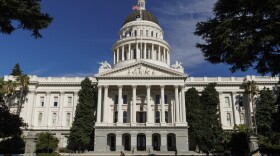A lawsuit filed four years ago in Texas has put the perennially controversial issue of affirmative action back in the national spotlight.
It could even end up reversing history.
The case began when two White students seeking admission to the University of Texas at Austin were turned away. They claimed they were shut out because of the school’s affirmative action policy seeking to diversify the student population.
They lost their case and were again turned down by a federal appeals court.
But the highest legal outlet in the country, the U.S. Supreme Court, decided this week to hear them out.
Some analysts were not surprised that the justices are now willing to give affirmative action another look.
With a liberal-leaning justice replaced by a staunch conservative on the court and another liberal justice recusing herself from the case, there’s a good chance the court will rule in favor of the students.
And if they do, that decision could have a tremendous legal impact in college admissions, said Mitchell Chang, a higher education professor at the University of California at Los Angeles (UCLA).
“The U.S. Supreme Court will be signaling the country that race is no longer a major factor in deciding whether certain groups can access educational opportunities,” Chang said.
Affirmative action supporters are dismayed the nation’s highest court is actually considering such a historic reversal.
“This is not the time to turn back the clock,” said Shirley Wilcher, executive director of the American Association for Affirmative Action.
“It really means rethinking our strategies, but it means continuing to push for equal opportunity in education because that’s the gateway to leadership in the future,” Wilcher added.
The Supreme Court could also rule narrowly so it would impact only the Texas campus. A decision is not expected until summer.






